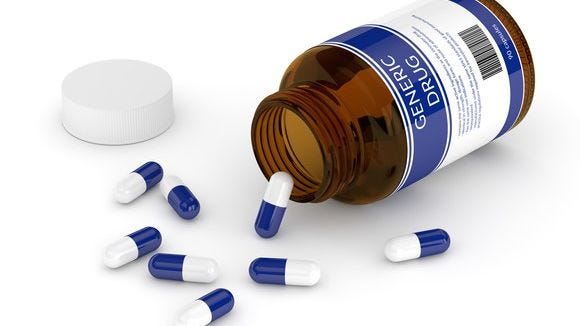India has an incredibly prolific market for medicines that are classified as generic. In fact, as per data, the generic drug market in India is slated to reach a staggering $28 billion in 2020. Generic medicines also constituted about 70% of the total market share of India’s pharmaceutical industry in 2019.
The data presented above demonstrates the fact that in India, the pharmaceutical market favours generic drugs over brand-name ones in terms of production and consumption. However, many are essentially unaware of ‘what is generic medicine’ and prefer to settle for low-priced medications without adequate information.
Following is a look at what such medicines entail, and if they can be safely consumed as an alternative for highly-priced brand-name drugs.
What is a generic medicine?
Generic medicines are essential drugs manufactured as suitable substitutes for existing brand-name medicines, in terms of strength, dosage, administration route, safety, and such other characteristics. Generic drugs are mostly sold under the name of their chemical components, like Paracetamol or Antiseptic Chloroxylenol.
Generic medicines are sold in the market only after the exclusivity and the patent protecting brand-named versions expire.
Now, the only striking difference between brand-named medicines and generic ones lie in the matter of how they are priced. The cost of generic medicines is significantly lower than brand-name ones, making the former preferable for a significant portion of Indian households, who need to bear medical expenses from out of their pockets.
Two reasons confirm why generic drugs are priced lower than the other version. These are –
- Generic medicines do not need to undergo the rigorous clinical trials that the brand-name ones have to before they are made available in the market. These companies manufacturing generic drugs can do away with the expenses incurred in the R&D of new medicines, resulting in a lower price.
- Sometimes to market a single generic medicine, a company approves multiple usages of the same. This, in turn, increases the competition in the market and leads to the lowering of the price of such medicines.
These are the primary reasons why generic medicines, despite having the same benefits as their branded alternatives are priced lower.
Now, after understanding what is generic medicine, it is important to learn whether they are safe for use.
Are generic medicines safe for use?
While there have been long-standing debates about the effectiveness and safety of generic drugs, there is hardly any evidence that testifies that these medicines can harm a patient. There have been a few isolated incidents over the years wherein patients suffered unforeseen side effects after taking generic medicines, but usually, these produce results similar to their brand-name counterparts.
Nonetheless, generic substitutes available for brand-name medicines to address specific health issues may not be available under certain circumstances. Under such conditions, individuals have no choice but to purchase expensive medication and subsequently land a hefty bill.
Such situations usually arise when individuals suffer from critical or uncommon illnesses, for which they need to purchase medications costing up to thousands of rupees.
In such cases, one can avail of a Health EMI Network Card and reduce the financial burden of purchasing expensive medication.
How does an EMI health card work?
By availing a health card like the Bajaj Finserv Digital Health EMI Network Card, individuals can convert the bills generated from purchasing medicines into easy, no-cost EMIs. These EMIs can then be paid over a tenor ranging between 3 months and 12 months, allowing cardholders to bear the burden of expensive medication without burdening their finances.
Apart from this, the following are a few other benefits that can be enjoyed by availing such a health card –
- A high pre-approved limit
These health cards come with a pre-approved limit of up to Rs.4 lakh, which can be utilised to address the expenses incurred in due course of over 800 healthcare procedures. Apart from medicines, these procedures include diagnostic care, various types of surgeries, treatment of critical illnesses, dental care, etc.
- Available pan India
The benefits of these health cards can be availed in over 5,500 of the NBFC’s partner medical facilities spread across 1,000+ Indian cities. These include leading pharmacies, hospitals, diagnostic centres, dental clinics, etc. in the country, from where one can avail top-notch healthcare.
- Covers entire family
These cards offer coverage for the cardholder’s entire family, including spouse, children, parents, and siblings. Such a benefit comes in handy for individuals with elderly parents who have regularly scheduled medication all year round.
- Instantly accessible
Individuals can avail such a health card directly from the financial institution’s website. Such type of health card provides financial help during health problems. To apply for the health card, existing customers of the financial institution will not have to submit any additional documents. They can simply pay the one-time purchase fee and access the card from the NBFC’s official app. The insta variant of this card requires payment of Rs.707 while individuals need to pay only Rs.589 for the non-insta variant.
Those who are not existing customers can avail of the card from any of the NBFC’s partner facilities across India.
With such benefits, this card makes for a convenient option to reduce the hassles of paying medical bills and purchasing expensive medicines. Thus, individuals who do not have an option to purchase generic drugs to treat their specific health issues can opt for this health card and avail brand-name medications without any hassle.




